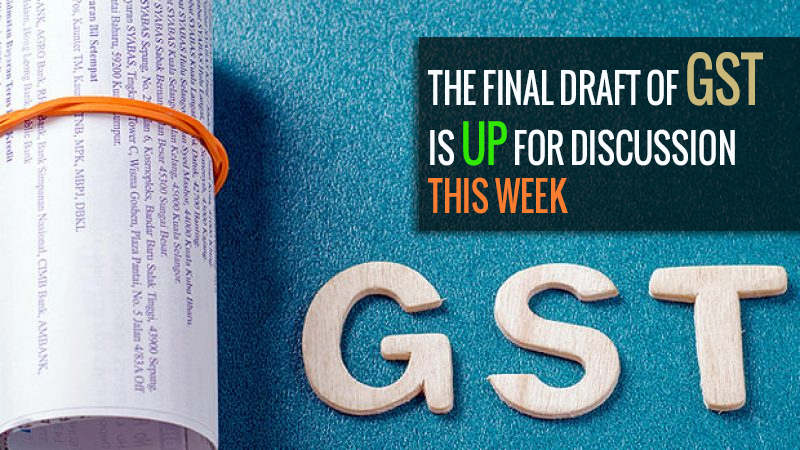
The final draft of the much talked about Goods and Service Tax (GST) , prepared by the central and state government officials,has been submitted to the the State Finance Ministers’ Committee. The empowered committee is expected to take the issue in the meeting that is planned for next week.
According to a Government Official,”The financial draft is ready, now it is the call of the empowered committee.”
There is much conjecture that the government might push forward the passage of the constitutional amendment bill , so that GST could be set out in the upcoming monsoon session of Parliament, in consensus with members in the Rajya Sabha and a broad-based national support for this reform.
Only single tax will be allowed after this amendment, which is not the case under the current structure of the taxation. Currently the states are not empowered constitutionally to for service tax and the goods sold in retail can not be taxed by central government, but after the amendment, both the State and Central government will be empowered to levy this tax.
GST strives to create a unified national market by eliminating the central and state taxes such as excise duty, service tax, value-added tax, entry tax and octroi and imposing just a single tax..
This is the reason why the Government of Narendra Modi is consistently persuading Congress to drop the resistance against GST to gain parliamentary approval.
Congress,the main opposition party, has more members in the upper house, and has set four conditions for backing the bill. As per the conditions, the rate should be capped at 18 per cent in constitution amendment bill itself, and the 1 percent levy on inter-state sale should be cut down.
Congress also wants an independent dispute settlement mechanism and voting power of three fourths for states instead of two thirds as suggested.
Read Also – Vijay Kelkar: GST to Raise the Economic Growth of India Rapidly
On the other hand, the government does not want to back the rate by constitution as it will make the tax rate rigid, and a constitution amendment has to be passed every time any change is required. Now a middle path is required to solve the dispute. If the GST law could have rates incorporated in it it would be easier to achieve the consensus. The proposed council also has the power in the tax-related decisions including exemption for a good or service or inclusion.
The Government is willing to drop the proposed 1 percent tax on inter-state sales.